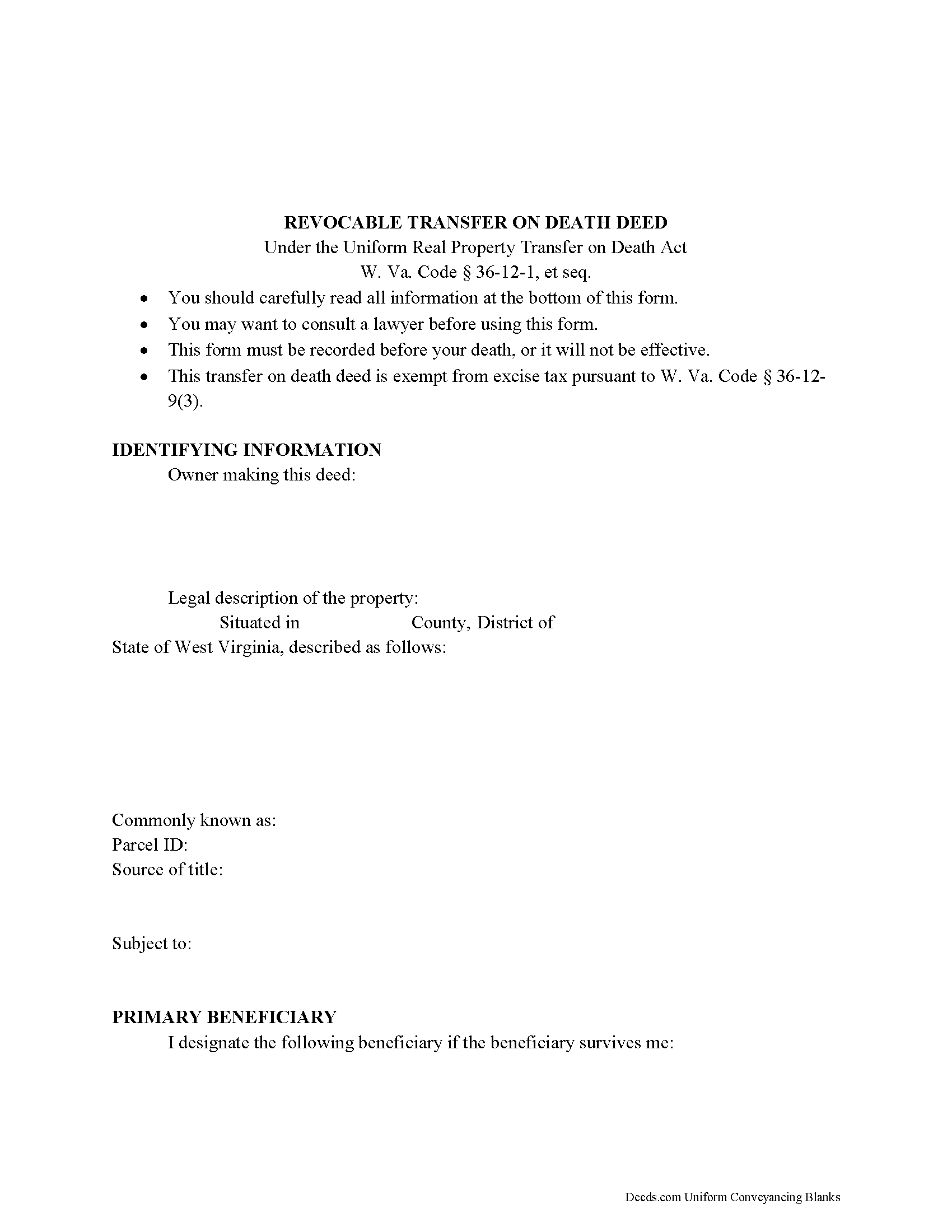Download West Virginia Transfer on Death Deed Legal Forms

West Virginia Transfer on Death Deed Overview

The West Virginia legislature voted to join with 13 other states and adopt the Uniform Real Property Transfer on Death Act (URPTODA). The law is found at 36-12-1 et seq in the Code of West Virginia, and went into effect on June 5, 2014. This act allows owners of real property in West Virginia to control the distribution of what is often their most significant asset, their real estate, by executing and recording a transfer on death deed (TODD).
Transfer on death deeds are non-testamentary, which means ownership of the property passes to the beneficiary without including it in a will or a need for probate (36-12-7). Still, sensible estate planning dictates that the will and the TODD should not be in conflict.
West Virginia's version of the URPTODA sets out the specific requirements for lawful transfer on death deeds:
- The capacity required to make or revoke a transfer on death deed is the same as the capacity required to make a will (36-12-8, 41-1-2).
- The transferor must be least eighteen years old; and
- Be mentally competent
- It must contain the essential elements and formalities of a properly recordable inter vivos deed, such as warranty or quitclaim deed (36-12-9(1))
- It must state that the transfer to the designated beneficiary is to occur at the transferor's death (36-12-9(2))
- It must be recorded before the transferor's death in the office of the clerk of the county commission in the county where the property is located (36-12-9(2)).
During the owner's life, the beneficiary has no rights to the property. Instead, it remains in the transferor's absolute control. This includes the freedom to sell or transfer it to someone else, and to modify or revoke the intended transfer on death (36-12-12). The option to revoke is why these deeds do not require notice to the beneficiary or consideration for the owner (36-12-10).
The beneficiary gains rights to the property ONLY when the owner dies, according to 36-12-13. Note, however, that the beneficiary must be alive at the time of the transferor's death or the interest returns to the estate (36-12-13(a)(2)). To prevent this from happening, the owner may identify one or more contingent beneficiaries (36-12-2(2)). All beneficiaries take title subject to any obligations (contracts, easements, etc.) associated with the property when the transferor dies (36-12-13(b)).
With the new transfer on death deeds, real property owners in West Virginia have a convenient, flexible tool for managing one aspect of a comprehensive estate plan. TODDs may not be appropriate for everyone, though. Since each situation is unique, contact an attorney with specific questions or for complex circumstances.
(West Virginia TODD Package includes form, guidelines, and completed example)